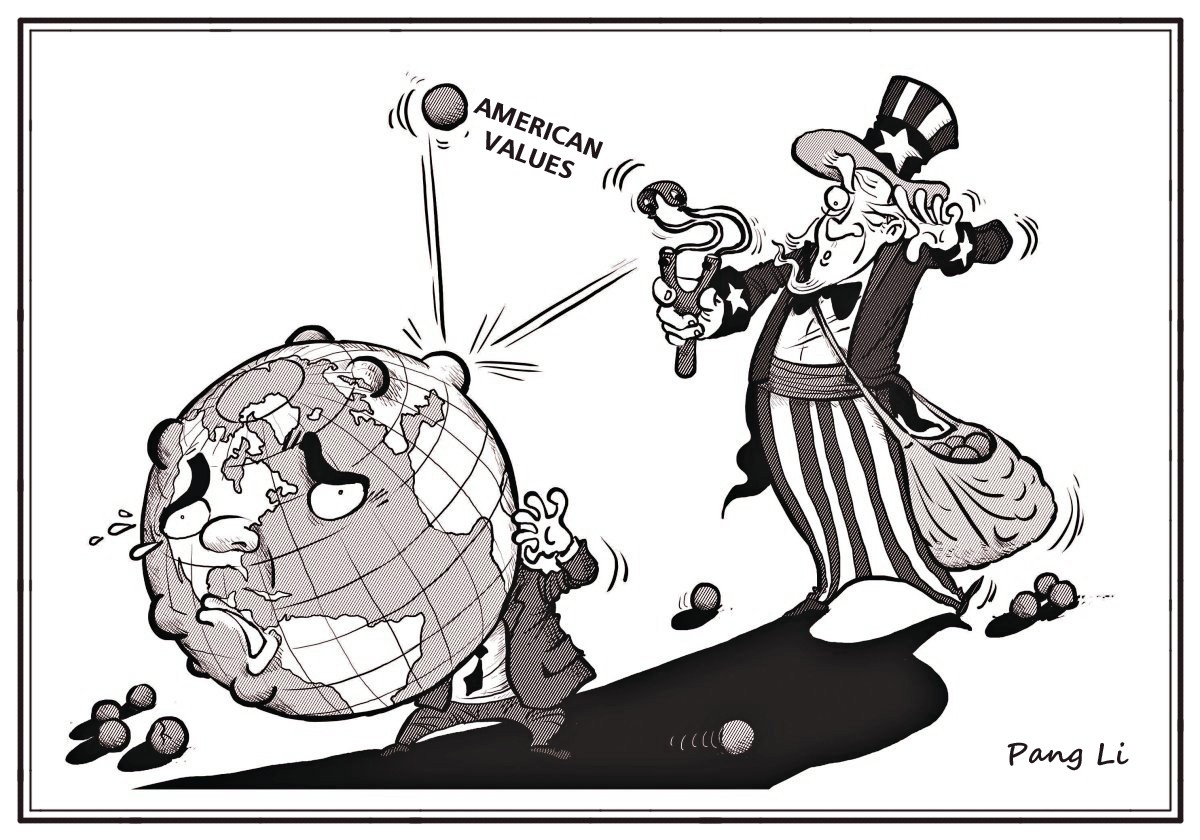
A Hard Sell of American Values Won’t Aid in the Fight Against Terrorism
Bin Laden's masterminding of the 9/11 attacks left not only Americans, but all people around the world shocked and dismayed, while the U.S. government saw the incident as a bitter humiliation. Rallying other nations around the world to its banner, the United States spent a full decade pursuing the perpetrators of the attack across the globe. The manhunt culminated in an operation that sent military units into Pakistan to kill bin Laden without first informing Pakistani authorities or gaining their consent, showing little consideration for diplomatic decorum. Having governed for eight years, and with the last months of his tenure now sinking below the horizon, Obama has earned few political achievements to put to his name, with the U.S. economy still lethargic and health care reforms hobbled by bureaucracy. At the time of bin Laden's death five years ago, Obama's approval ratings were at their peak. By recollecting that event at this juncture and again emphasizing its strategic and symbolic significance for the United States, Obama hopes to bolster his support among the public and remind Americans of his and the Democratic Party's contributions to the fight against terrorism, and by doing so perhaps garner more votes for the Democratic candidate in this year's general election.
Obama believes that adherence to American values can not only defeat the world's most prominent terrorists, but that it can also be a salve for other chronic ills that plague the planet. But what exactly are those American values? Simply speaking, they are the separation of powers and a political system with competitive elections, placing the social values of democracy, human rights and freedom above all else, and a set of religious beliefs rooted in the Christian tradition. The United States views this as a superior system of values — values that should be spread over the globe for all of humanity to adopt. For nearly half a century, the United States has used every means at its disposal to promote these values to various regions, but the resulting color revolutions over the past few decades have spelled only war and chaos for the Middle East, Eastern Europe and North Africa. American values have not brought democracy and civilization to those countries that have embraced them, but rather have only overturned the effective systems originally in place and created ripe breeding grounds for terrorism.
Bin Laden was the product of U.S. efforts during the Cold War to export American values to Afghanistan in opposition to the former Soviet Union, and his turning against the United States was a catastrophe of Washington's own making. The lingering effects have fueled civil wars in Iraq and Syria, given rise to the Islamic State group, a terrorist organization that has proven even more brutal and bloodthirsty than al-Qaida, and led to abhorrent terrorist attacks such as the Paris massacre and the airport bombing in Brussels. Millions of refugees have been displaced from their homes, a host of complex political, economic and religious issues have now surfaced, and at their center terrorists and their operations have become the single greatest threat to global security.
Judging friend from foe by their values has clouded the United States' vision and left them in a precarious position where the more mightily it struggles, the greater the terrorist threat it is fighting becomes. If U.S. leaders fail to recognize this and persist in forcing American values on other countries, worse yet is sure to befall the world, and the United States is no exception.
